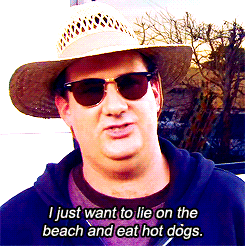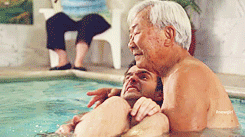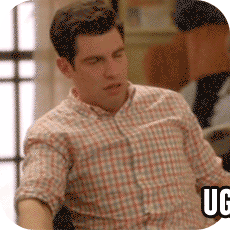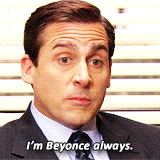Ready to show off your talents in an interview? Maybe you’re the kind of person who clams up and forgets everything about yourself. Or maybe you get nervous and info-dump, telling the interviewer about your pet guinea pig, your love for New Girl and everything under the sun. Whatever the case, the prompt “tell me about yourself” brings a whole lot of baggage for students interviewing for competitive positions, and it can be one of the hardest questions to answer. How should you tackle it?
Does “tell me about yourself” make you quake with fear? Worry not.
1. Be Professional

As more of a broad statement than a question targeting the nitty-gritty, students can easily lose focus of what interviewers actually want to hear. They may end up listing traits as if they were filling out their LinkedIn profile, or worse, their Tinder bio. “I just get super awkward,” University of Wisconsin-Madison junior Taylor Blazekovic said. “What do I even talk about? What do they want to hear?” But It turns out we may overthink the question.
Julie Rae, assistant director for UW-Madison’s Graduate Student Career Services, explained that these responses should focus on useful professional qualities. “Similar to a cover letter, the student should focus on the job description and prepare a response that speaks to [his or her] most relevant skills,” Rae said. Come up with that Amazon product description for yourself —the one you see when you click “quick view”—and use it to sell yourself to the employer.
2. Don’t Talk the Interviewer’s Ear Off

Don’t launch into an epic tale about your “learning experience” when you had a little too much fun at a party and ended up throwing up all over your friend’s bathroom floor. Life stories only work in small, appropriate doses. “I’ve begun by saying what college I was going to and talking about my life story,” UW-Madison senior Gabby Gigot said. Including personal tidbits makes an interviewee more of a person than a walking resume. Telling the story of how you broke your arm falling out of a hammock when you were eight could give important context to your interest in pediatric physical therapy.
However, Loren Kuzuhara, professor in the Department of Management and Human Resources at UW-Madison, explained that interviewees should be concise. “You don’t want to have a long-winded response because it loses its impact,” Kuzuhara said. Keep your stories short. If they’re interesting enough, the interviewer may ask you for more information, which lets you talk more and them ask less questions.
3. Make relevance your new BFF

A good resume shouldn’t include too many positions in the first place at the risk of feeling overwhelming. Same thing here—if the prompt “tell me about yourself” makes you feel swamped, you probably have too many options. “It’s such a broad question that I don’t know what parts are relevant,” UW-Madison sophomore Lorelei Caylor said. You may be that person who includes your elementary school under your education section. (Note: you do NOT want to be that person.)
The prompt “tell me about yourself” will most likely come up in an interview because it serves as an easy icebreaker. So knowing to pick a few positions ahead of time will serve you well. “The answer should be tailored as much as possible to the type of job,” Rae explained. “If it is a technical position, the student should highlight past, applied technical experience.” You loved being a counselor at day camp for all those years, but push that aside in favor of your time as a teacher’s assistant in an elementary school tech class.
4. Actually prepare to answer “tell me about yourself”

Walking into an interview with no preparation whatsoever begs for disaster, like eating Chipotle before a movie date with bae. “I was caught off guard [when I first got that question], so I just stumbled over my words and said random things,” UW-Madison junior Irina Shershneva said. Not answering this doesn’t mean you’re unqualified for the job or that you have C- social skills. It just means you didn’t prepare. “The more you practice, the more confident you’ll be,” Kuzuhara advised. Recite your elevator pitch to the mirror or even get a friend to ask you questions.
5. ….But Don’t Be Too Prepared

Memorizing and puking up a monologue at the interviewer’s feet will backfire. If you’re going to sound like a record, you might as well have sent an email. “[Interviewers] tend to run into similarly constructed responses,” said David Lewin, professor at the University of California, Los Angeles Anderson School of Management. They can smell something memorized a mile away. In an interview, you’re talking about the subject you know best: you. If you’re an expert on something, you don’t need a whole speech memorized, right? Have an idea of what you want to say, but keep it flexible so you sound calm and natural.
6. Stop Trying to be Sly

Interviewers also smell lies. Don’t go there. If you’ve never worked a desk job, don’t say that just to land the position. Or if you sat on a bench and watched kids run around in circles for camp, you probably shouldn’t list it off as “teaching assistant.” Staying authentic gives you more to talk about and keeps your response genuine. And if you show that you work hard but have limited experience in the field, that may even serve you well. “A person who hasn’t been sullied, so to speak, may even be a positive for the company,” Lewin said. Enthusiasm and willingness to learn look attractive to employers. A fresh perspective can come in handy for a company, so don’t stress too much about a lack of experience.
7. Distinguish yourself from the John Doe’s

Making yourself pop from the page works as a real plus in a society dominated by clone applicants. While staying professional, relevant and concise can determine if you snag the job or not, passion may help. Connect your strong suits to what you enjoy. “Personal things like hobbies and interests give interviewers an idea of who you are,” Kuzuhara said. If you hold a board position for an engineering club you adore and are applying for an engineering internship, both your leadership experience and genuine passion will make you stand out from other applicants. You should probably steer clear of anything creepy, though. Maybe keep your collection of doll heads under wraps.
8. Remember that Creativity is Key

Interviews only turn dry when you let them. Stay professional but also humanize yourself. Talking about how positions helped you to grow rather than merely listing them off like an overly intense robot will set you apart from other applicants. Don’t be that person who chucks water balloons at 60 miles an hour, completely drenching her partner.
But how should you make sure the interviewer accepts your toss? “Sometimes I’ll throw in a fun fact and hope that works. But it’s never been smooth,” UW-Madison sophomore Liana Keivanfar said. Fun facts don’t have to lead you off topic, however. Concentrate on relevant fun facts and make them pop. For example, if you love working on film sets and had experience as a production assistant, expand on it specifically instead of just glossing it over. “I would encourage people to take that question as ‘tell me a story,’” said Richard Young, professor of sociolinguistics at UW-Madison.
9. Bring your Enthusiasm! Yes!

A smile conveys a lot more than a few words. It says you’re someone the interviewer wants to work with every day. How, though, can interviewees stay positive in such a scary atmosphere? “If you have a passion, you should communicate it,” Lewin said. Talking about something you love will make you much more relaxed. Don’t fidget around like a frantic wind-up monkey, clashing your cymbal in the interviewer’s face after each question. Act more like a fluffy stuffed animal–pleasant but not rocketing off the walls like you just drank five cups of coffee.
10. Take the Room’s Temperature

Finally, don’t let those little voices tear you down. “Try and feel the emotional temperature of what’s going on,” Young said. “Are [the interviewers] asking stuffy questions? That’s OK. It’s them, not you.” Don’t take awkward interviews personally. If your interviewer purses her lips, folds her hands and keeps a deathly silence when you finish, that doesn’t mean she hates your response. It just means said interviewer needs to have a little more fun and maybe even take your example—she probably just wishes she had the same mad interview skills that you have.



















